Unlock your genetic potential or gift the power of personalized health. Browse our Supersaver Packs now.
In the field of DNA analysis, Xcode Life stands out as a reputable, reliable, and regularly recommended choice. Xcode Life analyzes data ranging from a few genes to whole genomes to generate health-related reports on various topics, including nutrition, fitness, skin, and allergies. They accept data from various platforms, including Illumina, Affymetrix, Sequenom, etc. Here are 5 things you should know before you buy Xcode Life's products.
You can use your DNA raw data from several service providers to sign up for Xcode Life.
Some of these include:
Xcode Life offers 11 health-related reports that cover over 700 categories.
Xcode Life offers 11 health-related reports that cover over 700 categories.
| Report Name | Number of Traits Analyzed | Examples |
| Allergy and Drug Sensitivities | 40+ | Pet Allergy Gluten Sensitivity Pollen Allergy Contact Dermatitis |
| Gene Skin | 20+ | Acne Premature Wrinkling Tanning Response Stretch Marks |
| Gene Health | 45+ | Alzheimer’s Type 2 Diabetes Hypertension Heart Diseases Depression Autoimmune Diseases |
| Gene Nutrition | 45+ | Vitamin Deficiencies Tendency to Lose Weight on Protein Intake Lactose Intolerance Alcohol Metabolism Tendency to Prefer Bitter/Fatty/Sweet Foods |
| Gene Fitness | 25+ | Endurance Pain Tolerance Hand Grip Strength Exercise Recovery |
| Traits & Personality | 25+ | Musical Ability Leadership Potential Creativity Warrior Personality. |
| Methylation & MTHFR | 65+ | MTHFR MTRR MTHFD1 CLCN6 NOX4 |
| Gene Sleep | 10+ | Sleep Duration Narcolepsy Frequent Daytime Napping Snoring Tendency |
| BRCA & Breast Cancer | 15+ | Breast Cancer Risk in Men Hormone Receptor and Breast Cancer Breast Size and Breast Cancer Alcohol Consumption and Breast Cancer Risk |
| Personalized Medicine | 500+ | Response to drugs like: Antidepressants Morphine Aspirin Warfarin |
| Caffeine Report | 10+ | Caffeine sensitivity Caffeine metabolism Caffeine overconsumption Caffeine-induced insomnia |
Xcode Life’s individual reports are priced between $20 and $50.
They also offer the following money-saving bundles:
| Health Pack | Wellness Pack | Genome Pack | |
| Number of Reports | 4 | 6 | 9 |
| Reports Included: | Gene HealthGene AllergyBRCA and Breast CancerPersonalized Medicine | Gene NutritionGene FitnessGene SkinGene SleepTraits and PersonalityMTHFR and Methylation | Gene NutritionGene FitnessGene SkinGene SleepTraits and PersonalityMTHFR and MethylationBRCA and Breast CancerPersonalized Medicine |
| Price: | $ | $ | $ |
Users appreciate the variety of traits in the reports and the speed at which reports are delivered.
The nutrition and MTHFR reports are the most popular.
Several users are pleased with the results of their personality trait reports.
Xcode Life has hundreds of testimonials and reviews online. Check them out below:
Check out more testimonials here.
Xcode Life has a customer-friendly privacy policy.
You can delete your raw data and entire account anytime without needing prior permission or approval from Xcode Life.
Review their detailed privacy policy here.
Upload your DNA raw data to Xcode Life to receive 700+ health-related traits.
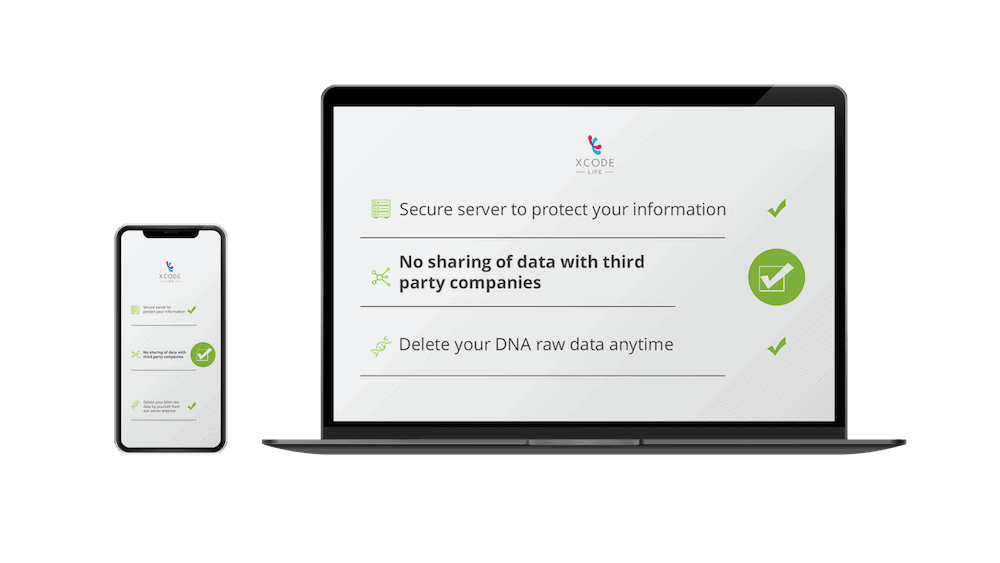
5 Ways Xcode Life Protects Your DNA Data
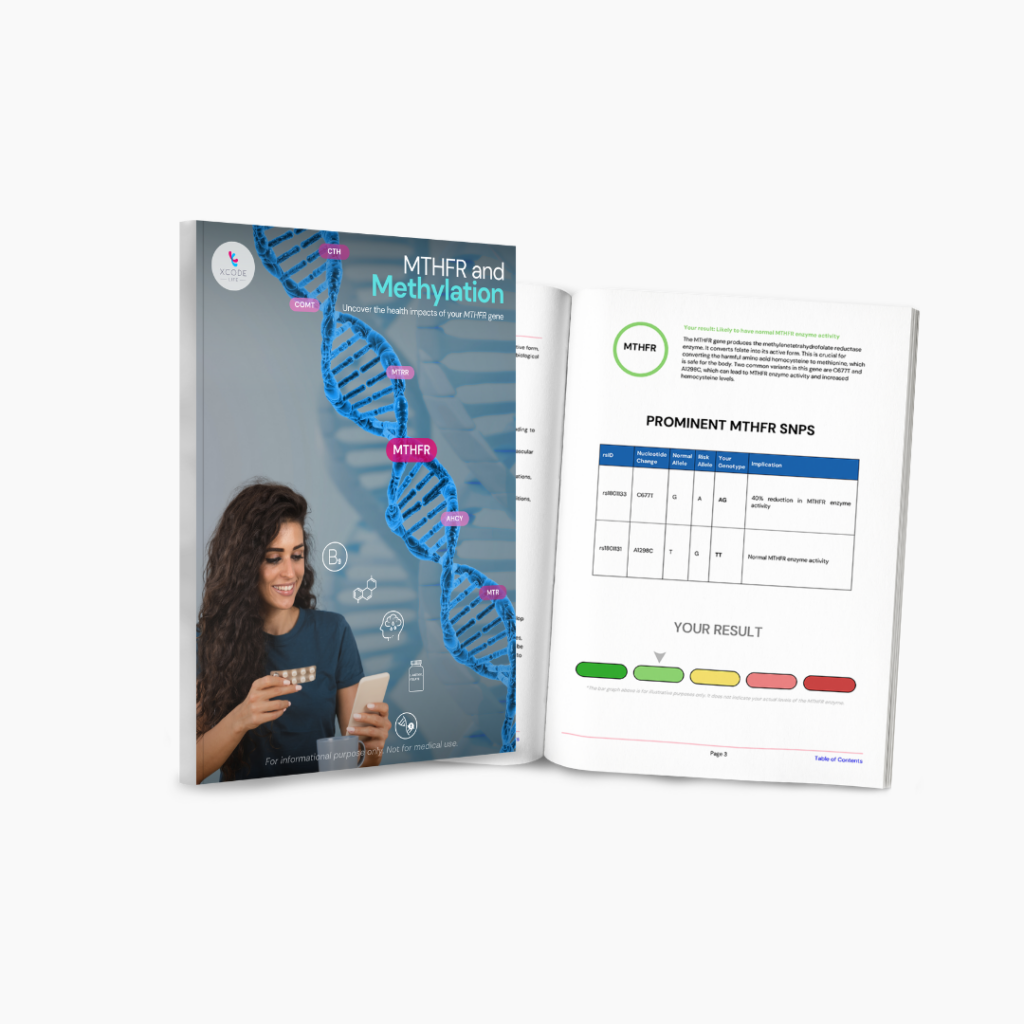
Xcode Life’s MTHFR Methylation Updated Genetic Report: A Walkthrough
Spots appearing on your skin from sun exposure could cause concern. However, freckles are entirely harmless. For many generations, they have been a source of admiration, envy, and curiosity. But how do freckles form? Why do some people have freckles on their faces and others do not? Are freckles genetic? Scientists have discovered that along with sun exposure, your genes may also play a role in developing freckles.
Freckles are small brownish dot-like structures seen on sun-exposed areas (mainly the face).
The primary causes of freckles are genetics and sun exposure.
During sun exposure, skin cells called melanocytes produce a pigment called melanin.
Melanin pigments your hair, eyes, and skin.
If the melanocytes produce melanin evenly, you get a tan in the sun.
However, some people produce more pigment in some areas than others, which can cause them to develop freckles.
Freckles are also more common in European populations due to their lighter skin.
There are two main types of freckles.
| Ephelides | Solar lentigines |
| Smaller in size (1-2mm) | Larger in size (up to a few cm) |
| Usually red or brown | Red, yellow, brown or black |
| More frequent in lighter-skinned people | More frequent in darker-skinned people |
| Common in children and teenagers | Common in people above 40 years of age |
| Caused by genetic factors | Caused by environmental factors |
Certain genetic factors regulate the function of melanocytes, which play an essential role in skin pigmentation.
Changes in these genes can increase a person's risk for freckles, sun spots, and tanning.
For example, a gene called MC1R produces the receptor for the melanocyte-stimulating hormone, one of the two hormones that regulate pigmentation.
Certain changes in MC1R reduce the production of pheomelanin (the lighter pigment), resulting in the overproduction of eumelanin (the darker pigment) in certain areas, leading to freckles.
The freckling trait is passed down from generation to generation in a complex manner.
Several genes interact with each other in this process.
Generally, the MC1R gene has a dominant inheritance pattern for freckles.
If your parents are prone to freckles, you probably will be too.
However, some people may carry the genetic marker for freckles and still never develop freckles.
Since sun exposure is the immediate cause of freckling; you could develop freckles even if your parents didn’t pass down the gene.
The MC1R gene also influences the chances of someone having red hair.
Some people produce eumelanin much less frequently than pheomelanin.
This results in light-colored hair.
It also explains why several red-haired people have freckles.
Freckles aren’t a cause for concern since they fade away with time.
However, since people who are prone to freckles have more sensitive skin, it’s best to be cautious when in the sun.
Long-term sun exposure can cause sunburns, wrinkling, and even some types of skin cancer.
The American Academy of Dermatology has issued the following recommendations to avoid sun damage and freckle formation.
Curious about your freckle genes? Here’s how you can learn about it in 3 simple steps:

Is Sleep Apnea Genetic? Risk Factors, Treatment, And More

Is Handedness Genetic? What Science Tells Us

National Wellness Month | 5 Life-changing Wellness Tips
https://my.clevelandclinic.org/health/articles/23091-freckles
https://www.medicalnewstoday.com/articles/323471
https://www.ancestry.com/c/traits-learning-hub/freckles
https://newsnetwork.mayoclinic.org/discussion/mayo-clinic-q-and-a-all-about-freckles
https://www.hopkinsmedicine.org/health/wellness-and-prevention/sun-safety
Tattoos, once considered a form of self-expression, are now raising concern for potential health risks. According to the Pew Research Center, 32% of Americans have a tattoo, and 22% have more than one. Yet, the safety of tattoo inks remains unexplored, and the potentially harmful effects of injecting them into the body remain unknown. A new study reveals that getting tattoos might increase the chances of cancer like malignant lymphoma. This article discusses the methodology, results, and limitations of the research to provide a clearer understanding of how tattoo inks might contribute to health risks like lymphoma.
A study conducted in Sweden suggests that getting a tattoo might increase the chances of getting malignant lymphoma by 21%.
Malignant lymphoma is a type of blood cancer that affects the lymph nodes.
The research was published in May in the journal eClinicalMedicine.
The study, conducted by researchers at the University of Lund, Sweden, correlates tattoos with malignant lymphoma and does not suggest that tattoos cause lymphoma.
They used the Swedish National Cancer Register to identify people diagnosed with malignant lymphoma.
The researchers then sent them questionnaires, asking them how many of them had tattoos.
About 20% of people responded that they had tattoos before their diagnoses, which led to the study's conclusion.
The study included around 12,000 people.
The researchers identified every person between 20 and 60 who had malignant lymphoma during the ten years from 2007 to 2017.
The researchers also found three randomly selected control groups with matching ages and sexes using the Total Population Register.
Nevertheless, getting a tattoo might increase the risk of developing lymphoma.
Tattoo ink contains various carcinogenic compounds and metals such as nickel, chromium, cobalt, and arsenic.
They can get deposited in lymph nodes when you get a tattoo.
Further, many tattoo artists and parlors don't practice good quality control and hygiene.
Thus, it's important to evaluate the risks before getting that tattoo you have wanted for a long time.
Some studies have attempted to understand if tattoos increase the risk of cancer.
However, these studies could not establish a link between tattoos and lymphoma.
Some risk factors for lymphoma are:
Experts say that while there is no evidence to prove that tattoos cause lymphoma, it is still essential to be cautious.
Tattoo ink contains some carcinogens, and unsterilized needles can cause diseases other than cancer.
Usually, getting a tattoo from certified studios and tattooists is relatively safe.
However, tattoos do have the risk of some complications, such as:
While this study has attempted to correlate tattoos with cancer, we still need more research to understand the risks thoroughly.
Getting a tattoo will probably not give you lymphoma.
However, it can still give you other diseases if you do it from unhygienic parlors and untrained tattooists.
Before getting a tattoo, consider the possible risks and ensure you get it from a trustworthy place.

Alcohol Does Raise Blood Pressure, Even With 1 Drink: Study Finds

Excess Use Of Smartphones Affects Male Fertility: Study Finds
https://www.sciencedirect.com/science/article/pii/S2589537024002281
https://www.thelancet.com/journals/eclinm/article/PIIS2589-5370(24)00228-1/fulltext#%20
https://pubmed.ncbi.nlm.nih.gov/32699076
Wellness isn't just a buzzword; it's an ongoing journey that many of us are trying to navigate. We've all had those moments where we promise ourselves to start eating healthier, exercise more, or finally get enough sleep, only to find that life gets in the way. The truth is, wellness isn’t a one-size-fits-all approach; it’s about understanding what your body and mind truly need. This National Wellness Month, instead of being overwhelmed by all the advice out there, let’s focus on five simple yet life-changing wellness tips that you can easily integrate into your daily routine. Whether you're looking to improve your physical health, mental clarity, or emotional balance, these tips are designed to help you achieve a well-rounded sense of well-being.
When we think of wellness, physical health often comes to mind first.
However, true wellness is a much broader concept, encompassing multiple dimensions that all contribute to our overall well-being.
Here’s a deeper look into the various facets of wellness and how they intertwine to create a balanced and fulfilling life:
Physical wellness is about more than just the absence of illness; it’s about thriving.
This dimension includes healthy behaviors like eating a balanced diet, staying active, getting enough sleep, and practicing safe habits.
By making these choices, you not only maintain your body but also set a foundation for a vibrant, energetic life.
Emotional and mental wellness are the cornerstones of perceiving and responding to life’s challenges.
It’s about understanding and managing your emotions, cultivating resilience, and maintaining a positive outlook.
Good mental health influences every other aspect of wellness, helping you navigate stress, build strong relationships, and find joy in daily life.
Spiritual wellness is often overlooked, yet it plays a crucial role in finding meaning and purpose.
Nurturing your spiritual side, whether through religion, meditation, or personal reflection, helps you align with your core values and find a sense of direction and inner peace.
Human connections are vital to our well-being.
Social wellness is about building and maintaining healthy relationships, communicating effectively, and being an active part of your community.
Strong social ties provide support during tough times and enhance the joys of life, contributing to a sense of belonging and security.
Financial wellness isn’t just about having enough money; it’s about managing your resources in a way that supports your life goals without causing undue stress.
Understanding how to balance income, savings, and expenses can lead to peace of mind and the freedom to enjoy life rather than being burdened by financial worries.
Vocational wellness goes beyond your job; it’s about finding fulfillment and purpose in what you do.
Whether through your career, hobbies, or volunteer work, using your skills and talents in meaningful ways contributes to your overall sense of achievement and satisfaction.
The environment you live in has a profound impact on your well-being.
Environmental wellness involves creating a living space that nurtures your health and happiness, whether it’s through reducing clutter, connecting with nature, or fostering sustainability.
A positive environment supports your other wellness goals and promotes a sense of peace and harmony.
Wellness is not a single entity but a complex, interconnected web of factors that work together to create a life of balance and fulfillment. By nurturing each of these dimensions, you can build a strong foundation for a healthier, happier life.
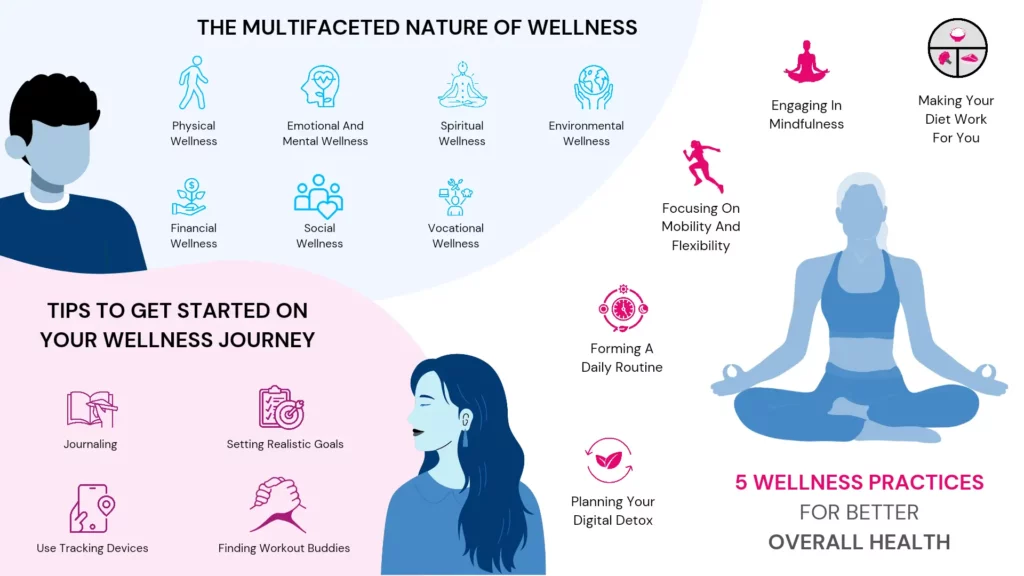
With a clear understanding of wellness and its dimensions, let’s look at 5 wellness practices that can improve your overall health!
In today’s digital era, there's no shortage of diet and nutrition advice at your fingertips.
Unfortunately, with this abundance comes a flood of misinformation. The truth is, there’s no one-size-fits-all diet that works for everyone.
What works wonders for one person might not yield the same results for another.
This is because our bodies are unique and influenced by factors like lifestyle, environment, and even genetics.
The way your body processes nutrients can differ significantly from someone else’s, meaning a diet that’s effective for one person might not suit your needs at all.
That’s why personalized nutrition is so important. Instead of following the latest diet trend, it’s crucial to understand what your body specifically needs.
Working with a nutritionist can help you tailor a diet plan that aligns with your individual health goals and lifestyle.
Ultimately, the key is to listen to your body and focus on what makes you feel your best rather than relying on generalized advice.
Mindfulness and meditation have gained significant recognition for their profound impact on both physical and mental health.
The American Heart Association (AHA) recommends mindfulness practices that involve deep breathing, quiet contemplation, and focused attention as effective tools for reducing stress and enhancing overall well-being.
Research supported by the AHA highlights several benefits of mindfulness, including:
If you’re new to mindfulness, getting started can be simple and accessible.
Starting with just 5-10 minutes of mindfulness in a comfortable space can help anchor the habit.
There are also online videos on guided mindfulness that can give a boost.
Further, mindfulness is not just about sitting in a place and meditating; try being fully present while engaging in daily activities, such as eating, walking, or even washing dishes.
In the current fitness landscape, strength and weight training have rightfully earned their place in the spotlight.
However, flexibility and mobility often remain overlooked despite being crucial components of a well-rounded fitness routine.
These two aspects of fitness are not just about achieving a deeper stretch or a wider range of motion—they are key to aging gracefully and maintaining independence as we grow older.
Incorporating flexibility and mobility exercises into your routine offers a multitude of benefits:
As we age, the importance of mobility training becomes even more apparent.
Regular flexibility exercises can help ensure that, even in your later years, you maintain the ability to move freely and independently.
This can significantly enhance your quality of life, allowing you to stay active and engaged in the activities you love.
Humans thrive on routine, and establishing a daily structure can be a powerful tool for improving overall health and well-being.
Doctors and wellness experts worldwide emphasize the importance of having a consistent routine, as it provides numerous benefits beyond just physical health.
Creating and sticking to a daily routine can:
By forming a daily routine that works for you, you create a framework that supports both your physical and mental well-being.
This consistency not only helps you stay on track with your health goals but also contributes to a more balanced and fulfilling life.
In today’s hyperconnected world, we're glued to our screens—whether it’s our phones, laptops, or TVs.
While technology keeps us informed and entertained, too much screen time can start to wear us down, both mentally and physically.
That’s why taking a break with a digital detox can be so refreshing.
A digital detox simply means stepping away from your devices for a while to reconnect with the real world.
It’s about giving your mind a breather from the endless notifications and information overload.
This break can help you feel less stressed, sleep better, and improve your overall well-being.
Here’s how you can make the most of your digital detox:
By regularly taking time away from your screens, you give yourself a chance to recharge and focus on what really matters. It’s a simple step that can make a big difference in how you feel day-to-day.
Tips to Get Started on Your Well-being Journey This National Wellness Month
Now that you have a solid understanding of wellness and the practices that contribute to overall well-being let’s dive into some practical tips to help you kickstart your wellness journey. These tips are designed to be easy to implement and can make a real difference in your daily life.
Journaling is a powerful tool that allows you to articulate and reflect on your thoughts and experiences. It’s more than just writing down your day—it’s about setting clear goals, gaining clarity, and boosting your mental health.
To get started:
It’s easy to get excited about starting your wellness journey, but it’s important to set goals that are realistic and achievable. The biggest obstacle people face is burnout from setting goals that are too ambitious.
In our digital age, we have access to tools that can make our wellness journey more informed and personalized. Fitness trackers and health apps can monitor everything from heart rate to sleep patterns.
Staying motivated can be tough when you’re on your own, which is why finding a workout buddy or joining a community can be so beneficial.
By integrating these tips into your daily life, you can create a strong foundation for your wellness journey. Remember, it’s all about making small, consistent changes that add up to big improvements in your overall health and well-being.
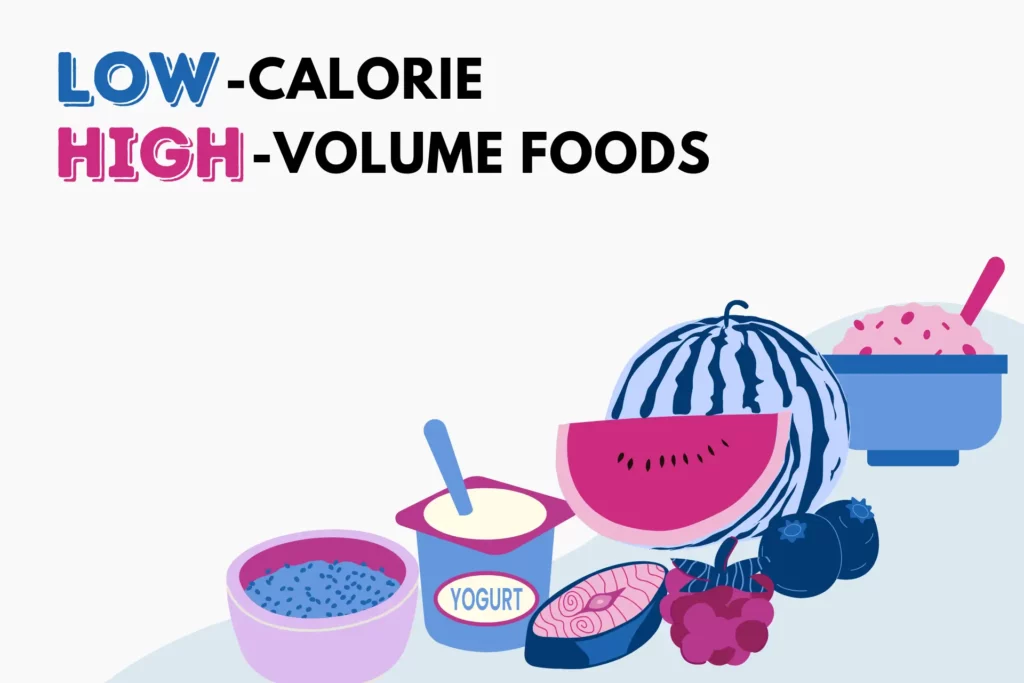
Low-calorie High-volume Foods: The Key To Feeling Fuller For Longer
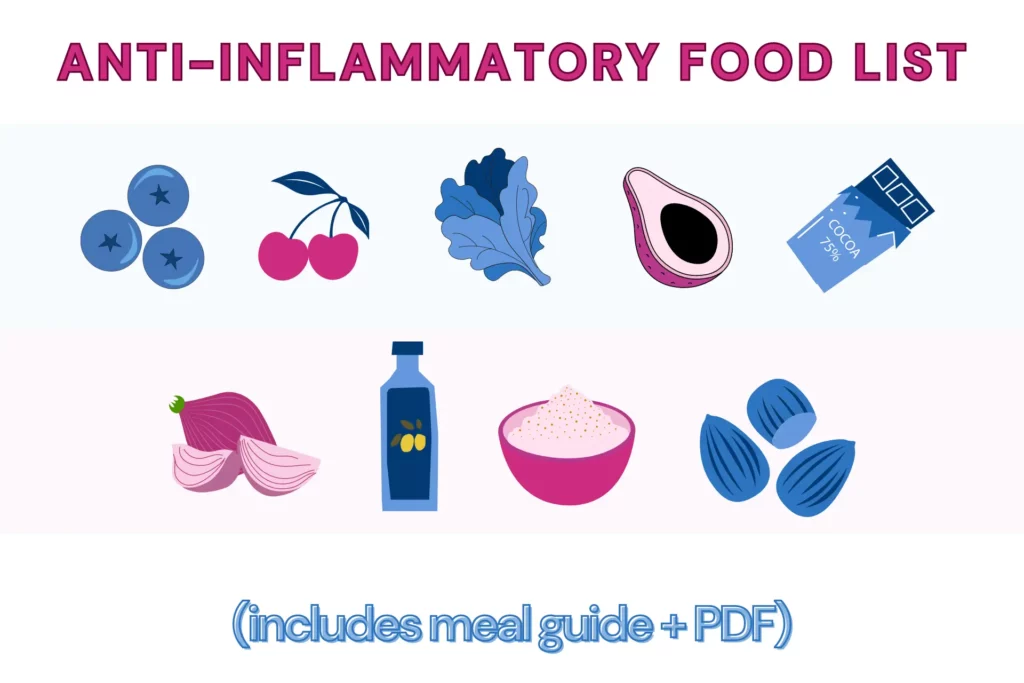
The Ultimate Guide To Anti-inflammatory Diet + Food List PDF
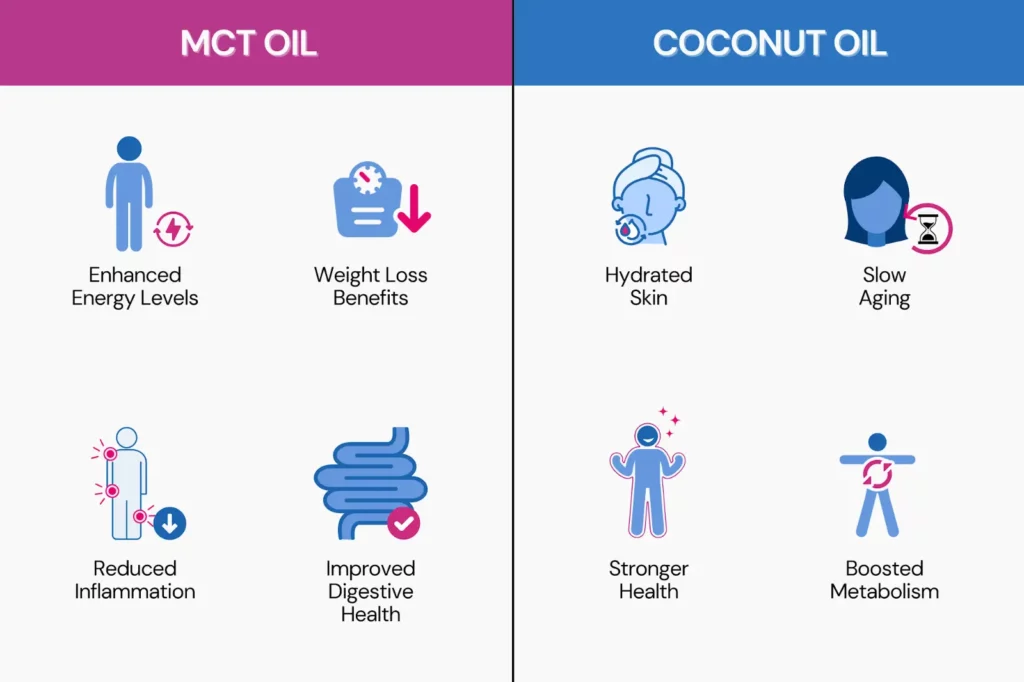
MCT Oil vs. Coconut Oil: Differences In Benefits And Risks
As of 2023, there are over 15 million Jewish people worldwide. If you suspect that you have Jewish heritage, there are several companies that offer a Jewish DNA test as part of their ancestry reports. Since Jewish people mingled within their communities for generations, their DNA has some markers and traits that were passed down through generations. These markers can help identify your Jewish ancestry even today, hundreds of years on. This article will elaborate on Jewish heritage, how to test for it, and what you could learn from your results.
Scientists identify certain markers in your DNA when you take a genetic test.
They can compare these markers to similar genomes in a database.
People with common ancestry often share certain markers that are specific to a region.
Scientists can estimate your ethnic ancestry based on the similarity and frequency of these markers in your DNA.
That’s how these tests can identify Jewish ancestry, which is actually a religious identity.
According to history, Jewish communities settled in Europe during the Roman rule of Judea.
They remained an independent community for a long time, marrying within their own communities.
Being genetically Jewish means that some or all of your ancestors were Jewish.
Thus, Jews of European descent may carry the same gene mutations and traits that have been passed on across generations within the Jewish community.
These genetic variations can be identified with Jewish DNA tests.
The most significant Jewish ancestries/communities include:
Most of the DNA tests right now can only identify Ashkenazi Jewish ancestry.
The other sub-groups have spread out wider and have mixed ethnicities.
A Jewish DNA test is similar to any home DNA test. You can order any ancestry DNA test kit and provide your sample (cheek swab or saliva).
The lab will then analyze your DNA and email the results.
There are three ways in which Jewish DNA test kits can identify your ancestry.
Your ancestry composition report highlights the regions from which your DNA originated out of thousands of regions in its database.
Since it is believed that the original Ashkenazi Jews originated from a particular region, the ancestry composition test may include this detail in their report.
Y-DNA tests are done on males to determine their paternal ethnic origins.
Since the Y chromosome is passed on from the father to the son, this can help trace the ancestors from the paternal side.
Women cannot get their paternal line tested with their DNA samples because they don’t carry the Y chromosome.
They may need to provide samples of their male relatives to run the test.
mtDNA or mitochondrial DNA is passed on from the mothers to their children.
These reports generate something called the mitochondrial haplogroup using mtDNA.
Mitochondrial haplogroups comprise people with similar mtDNA worldwide who have descended from a common female ancestor.
Four mitochondrial haplogroups occur frequently in people with Ashkenazi ancestry – N1b, K1a1b1a, K1a9, and K2a2a.
Europeans who carry these four haplotypes are more likely to have Jewish ancestry.
Being genetically Jewish means that some or all of your ancestors were Jewish.
You may carry the same gene mutations and traits that have been passed on across generations within the Jewish community.
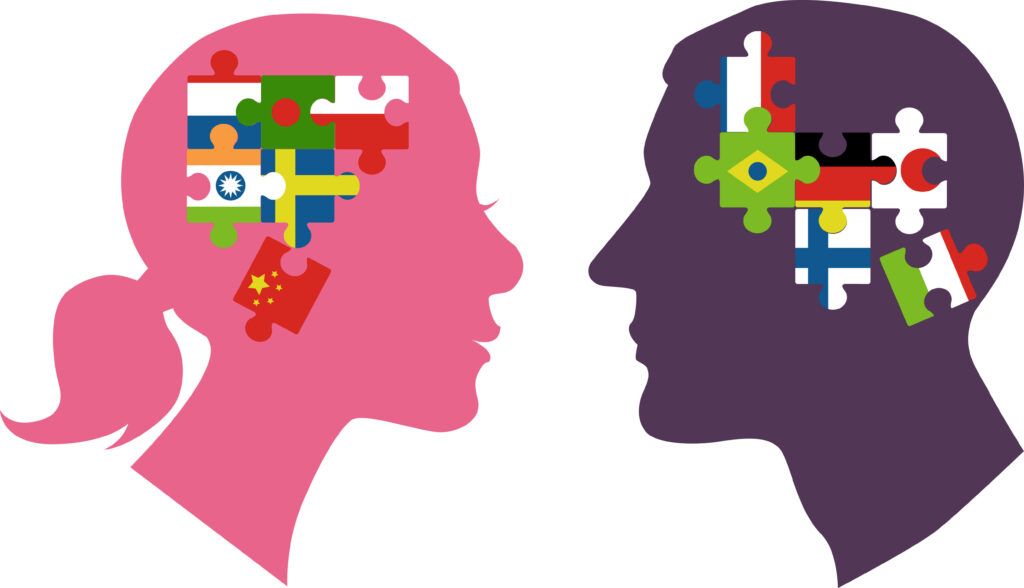
Millions of people worldwide test their DNA to find their ancestral origins.
While curiosity is one reason, many want to understand their lineage and connect with possible relatives they don’t know exist.
Knowing your ancestry may also give a clearer idea about some of your traits and behavior.
A 2010 study mentions that people of Ashkenazi Jewish descent are at higher risk for conditions like cystic fibrosis.
The descendants of these individuals are at higher risk for certain genetic conditions compared to non-Jewish individuals.
Some studies recommend that Ashkenazi Jewish partners get tested for carrier status for the following diseases to know the risk their descendants carry.
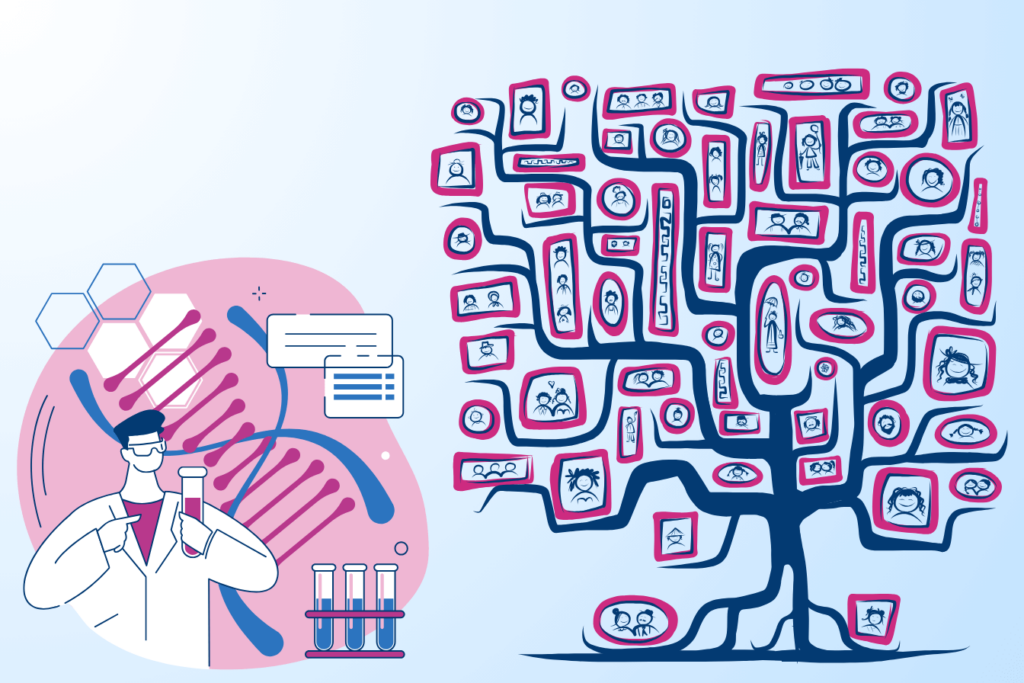
Haplogroups: The Key To Unraveling Ancestral Origins

7 Physical Signs Of Viking Ancestry That May Suggest You Have Viking DNA
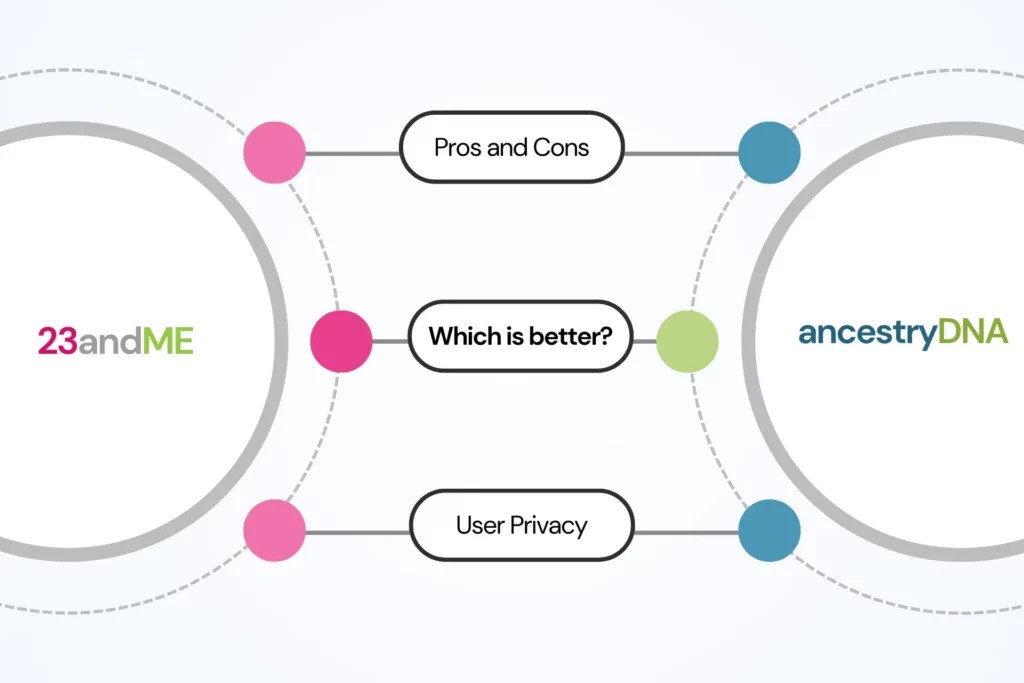
AncestryDNA vs 23andMe: Which Is Better For Raw Data Analysis?
Want to know how your genetic makeup impacts your health, ancestry, and fitness? Sequencing.com might provide the answers you need. As the DNA testing industry grows, Sequencing.com distinguishes itself by offering both affordability and comprehensive analysis. Founded by a leading genetics expert, this platform is changing the way genetic testing is approached. It provides advanced genetic analysis tools and a broad marketplace of DNA-related applications. Explore what Sequencing.com can offer and decide if it’s the right fit for your needs.
Sequencing.com is a DNA testing company that also offers a platform for various DNA-related apps.
Their marketplace includes both free and paid options for services such as ancestry analysis, health reports, and nutrition recommendations.
The company was founded by Dr. Brandon Colby, a genetics expert who earned an MD from Mount Sinai School of Medicine.
Sequencing.com aims to make genetic testing more affordable and accessible.
It provides free, unlimited DNA data storage to ensure secure storage, meaningful interpretation, and privacy of genetic data.
Additionally, the company offers detailed reports and tools that turn complex genetic information into practical health advice.
Sequencing.com provides a straightforward process for accessing genetic insights:
Sequencing.com offers an advanced Whole-Genome Sequencing (WGS) service that provides a detailed analysis of an individual's complete DNA.
While standard DNA tests analyze less than 0.1% of the genome, Sequencing.com's WGS covers the whole genome, including about 30,000 genes and 3 billion variants.
This service, which used to be very expensive, is now available at a more economical rate through Sequencing.com.
With a 'Privacy Forever' guarantee, Sequencing.com ensures that your data is never sold or shared.
WGS offers features like the Wellness and Longevity View and Genome Explorer and complete access to both raw and analyzed genome data.
These features make it valuable for both individuals and healthcare professionals.
Sequencing.com lets you easily import your DNA data if you've tested with 23andMe, MyHeritage, FamilyTreeDNA, Living DNA, HomeDNA, Vitagene, or DNA Land.
You can either import your data directly into your account or upload it from your PC.
Here’s how to do it in a few simple actions:
Your file is typically uploaded to Sequencing.com account within 15 minutes.
Already taken an ancestry genetic test with companies like 23andMe, AncestryDNA, MyHeritage, etc.? You can now upload your raw DNA files to access over 10 health and wellness reports (including methylation reports) starting from $30.
| Category | Trait | Free/Price |
| Health | Next-Gen Disease Screen | Free |
| Health Scan | Free | |
| Healthcare Pro | $199 | |
| Hormone Health | $59 | |
| Female Sexual & Reproductive Health | $59 | |
| Prevent Breast Cancer | $19 | |
| Inflammation And Immunity | $59 | |
| Cardiovascular DNA Wellness Report | $59 | |
| Disease Risk Genetic Test Report | $59 | |
| Healthy Heart | Free | |
| Immune System & Infectious Diseases | $19 | |
| Malignant Hyperthermia | $19 | |
| Basic Wellness | $4.99 | |
| Blood Traits and Conditions | $19 | |
| Birth Control Pill Risk | $1 | |
| Will Aspirin Help | $1 | |
| Promethease | Free | |
| Ancestry | Genetic Ancestry with Haplogroups | $59 |
| World Ancestry Report | $79 | |
| Map My Genes Archaeology Edition | $19.99 | |
| Map My Genes | $19.99 | |
| DNA Ancestry and Genealogy Report | $10.99 | |
| Am I An Einstein | Free | |
| Am I Related To Trump? | Free | |
| Relative Matching | DNA Family Finder | Free | |
| Am I Related? Relatedness Calculator | $9.99 | |
| Ancient Ancestry DNA and Me | Free | |
| Nutrition | Nutrigenomics: Nutrition Analysis | $29 |
| Nourish | $59 | |
| Weight Loss | $139 | |
| Beauty | Genetic Risk of Hair Loss | $19.99 |
| Health/Nutrition | Gut Health | $59 |
| Lactose Intolerance | Free | |
| Health/Nutrition/Fitness/Lifestyle | Empower | $59 |
| Bioinformatics/Health | Genome Explorer v3 | Free |
| Health/Lifestyle/Children | Brain Health: Mental Health & Mood | $59 |
| Cognitive Function Genetic Test Report | $59 | |
| Comprehensive Wellness | $189 | |
| Health/Children | Wellness and Longevity | $199 |
| Complete Genome Analysis | $189 | |
| Medication & Drug Response | $59 | |
| Inherited Traits Genetic Analysis | $129 | |
| Prevent Sudden Death | $19 | |
| Carrier Status | $29 | |
| Alzheimer’s Risk | APOE Gene Analysis | $39 | |
| MTHFR DNA Wellness Report | $29 | |
| Health/Lifestyle | Psychedelics PGx: Complete DNA Guide | $149 |
| Cannabis DNA Health Report | $29.99 | |
| Weather My Way +RTP | Free | |
| Enhanced Longevity | $59 | |
| My Personality Traits | $59 | |
| Arthritis Prevention | $9.99 | |
| Age with Strength | $4 | |
| Health/Nutrition/Children | Vitamins DNA Wellness Report | $39 |
| Blood Type Analysis | Free | |
| Health/Beauty | Melanoma Skin Cancer Prevention | $9.99 |
| Ancestry/Beauty/Children/Art/Bioinformatics | DNA Selfie | Appearance Predictor | $4.99 |
| Art | DNA Art | $299 |
| Health/Lifestyle/Children/Beauty | Genetic Detoxification | $69 |
| Sleep DNA Wellness Report | $39 | |
| Ancestry/Children | Santa and Me | Compare Your DNA to St. Nick | Free |
| Lifestyle/Children/Nutrition | Healthy Nutrition | $39 |
| Lifestyle/Nutrition | DNA Diet | $59 |
| Health/Nutrition/Fitness/Lifestyle/Children | TBG Total Wellness | $119 |
| Health/Fitness | Athletic Performance | Free |
| Health/Nutrition/Children/Bioinformatics | Genetic Counseling | $179 |
| Lifestyle/Beauty | Longevity DNA | $139 |
| Skin Genes | $59 | |
| Lifestyle/Fitness | Gene-In-Form Personalized Fitness | $49 |
| Children/Lifestyle | Personality DNA | $99 |
| Thrive | $59 | |
| Beauty/Children | Physical Appearance Genetic Report | $19 |
| Fitness/Children | Sports and Exercise | $99 |
| Fitness | RunDNA | $59 |
| Athletic Training Pro | $169 | |
| Fitness DNA Test Report | $29 | |
| Bioinformatics | Genome VCF | $19.99 |
| Sequencing Depth and Coverage | $9.99 | |
| Variant Effect Predictor | $19.99 | |
| Variant Discovery | $19 | |
| Imputation Analysis | $9.99 | |
| EvE Premium | $19.99 | |
| Short Read Mapper | $249 | |
| Clinical Annotator of Variants | $19.99 | |
| Genome Overview | $29.99 |
Navigating the Marketplace is relatively straightforward.
Users can search for specific apps or browse categories to find relevant reports.
The platform is designed to be user-friendly, allowing for easy access to both free and paid services. Some notable apps include:
Despite the variety of tools available, users have expressed concerns regarding the quality and comprehensiveness of the reports.
Some reports are noted to be dense and complex, potentially overwhelming for those without a background in genetics.
Additionally, the pricing structure can lead to unexpected costs, as many reports require separate purchases beyond the initial membership fee.
Based on forum discussions and social media conversations, users' experiences with Sequencing.com appear mixed.
Many are intrigued by the affordable whole genome sequencing offered, especially compared to earlier prices.
However, questions persist about the accuracy and comprehensiveness of results, particularly for rare disease and ancestry testing.
A recent review on Reddit highlights some challenges with Sequencing.com. The user appreciated the promise of privacy protection and the range of genealogy apps offered.
However, they encountered issues with importing Ancestry.com data, unclear privacy policies, and discrepancies in in-app discounts.
The review also mentioned that some apps appeared unavailable and that membership options were only disclosed after registration.
While the user is still hopeful about the service's potential, they expressed concerns about privacy and app accessibility.
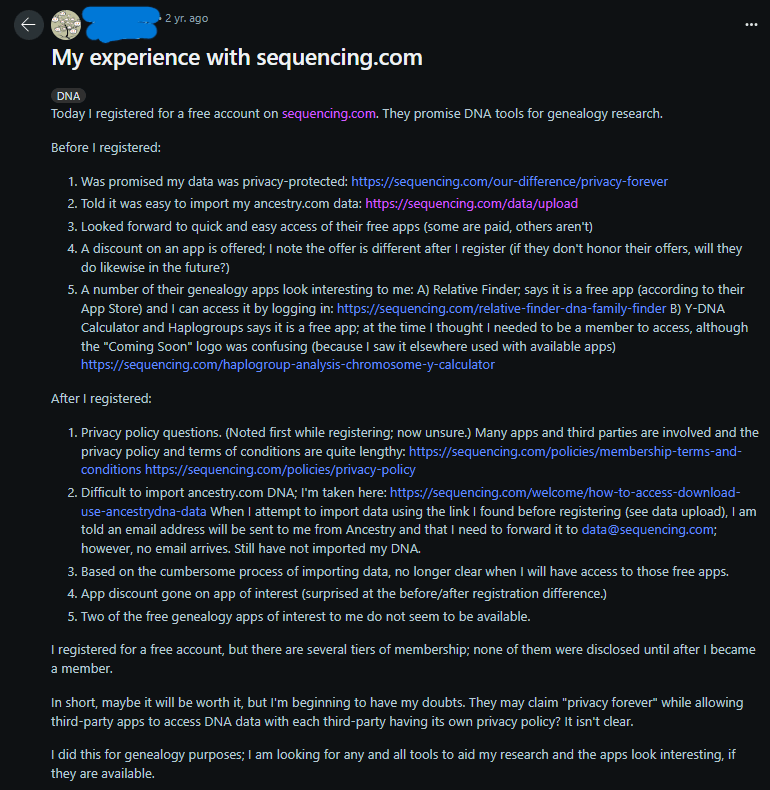
Yes, Sequencing.com offers medical-grade DNA testing. They provide two key tests: the Ultimate DNA Test and the Ultimate Genome Sequencing.
The Ultimate DNA Test utilizes advanced microarray technology to examine over 30 million genetic variants.
On the other hand, the Ultimate Genome Sequencing offers clinical-grade 30x whole genome sequencing, covering your entire genome. This test also includes screening for over 2,000 genetic conditions.
Moreover, through their DNA App Store, you can explore numerous reports that deliver comprehensive insights into your health and well-being.
Sequencing.com holds an A+ accreditation from the Better Business Bureau and has gathered multiple reviews on its site, with an average rating of 3 out of 5 stars.
While some negative feedback relates to customer support, it seems that these issues have been addressed.
On TrustPilot, Sequencing.com has an average rating of 4.0 out of 5 stars. Many users appreciate the platform's ease of use and the valuable information it provides.
Customers have expressed their satisfaction with Sequencing.com, as seen in these reviews from Sequencing.com's testimonial page and TrustPilot:
One customer shared, "Mind-blowing insights! Everyone should have this information about their genetic makeup!"
Another customer expressed, "The results are real and true assessment. We discovered valuable information about my son's genetic conditions."
One user highlights, "I love this DNA Company. The monthly updates on health results are incredibly useful."
Anotheq reviewer mentions, "I am very satisfied with my experience ordering genetic testing from Sequencing. The disease screen and ancestry reports are fantastic."
Additionally, Sequencing.com is discussed on Reddit, where users and the company engage in conversations about their experiences.
This site is great. I’d been watching a lot of the Gary Becka videos about methylation tests and how they can help identify gene mutations and since we had already done a dna test with ancestry dna it was easy to just drop in our raw data from there and within just 1 day we had our results and are working towards our health now knowing ourselves better. At a much lower cost it’s a no brainer.
- John PerryReally great value compared to other medication gene testing, & you can see which genes you have & can cause affects to medication so even if they don’t have every single medication you need on the long list they give, you can research what medications are metabolized by said gene & learn even more. Really glad I found them 100% worth it. $25-$40 compared to $500-$900 for the same thing.
- N. Watson
Sequencing.com offers DNA testing and analysis services with a focus on affordability and accessibility.
They provide WGS, a detailed analysis of your entire genetic makeup.
You can upload DNA data from services like 23andMe, AncestryDNA, or MyHeritage or use their at-home DNA test kit.
Sequencing.com also offers a marketplace with various DNA-related apps for health, ancestry, nutrition, and more.
Customer reviews on Sequencing.com's website and Trustpilot are generally positive, highlighting valuable health insights and detailed reports.
However, a Reddit review raises concerns about data import issues, unclear privacy policies, and app accessibility.
While Sequencing.com provides medical-grade DNA testing, reviewing both positive and negative feedback is essential before making a choice.
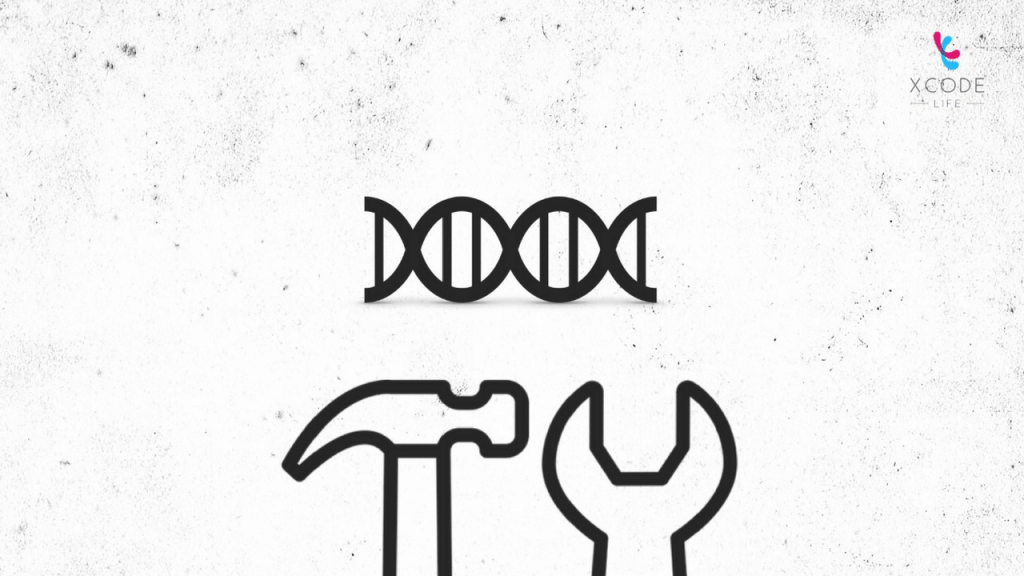
2024 Update: Free Tools For 23andMe, AncestryDNA, FTDNA Raw Data Analysis

Family Tree DNA Review: What You Need To Know In 2024

AncestryDNA vs 23andMe: Which Is Better For Raw Data Analysis?
https://www.bbb.org/us/ca/pasadena/profile/biotechnology/sequencingcom-1216-1078918/customer-reviews